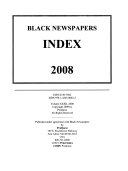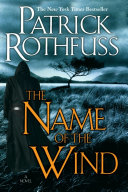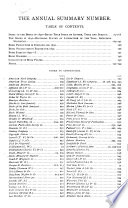Discover our list of the best authors like Patrick Rothfuss. Each one will take you on a fantasy exploration through their fantastic worlds.
Patrick Rothfuss was born in Wisconsin and attended college at the University of Wisconsin-Stevens Point, where he studied English. While in school, he wrote for The Pointer, the campus newspaper. After graduation, he taught part-time at the school. In 2002, he won the Writers of the Future competition with a short story entitled “The Road to Levenshir.”
This early success gave him a taste for writing professionally, and he started working on his first novel. In 2007 he published The Name of the Wind, which was listed in Publisher’s Weekly Books of the Year and earned him an Alex Award. Its sequel, The Wise Man’s Fear, came out in 2011 and was number one on the New York Times bestseller list.
Though Rothfuss doesn’t yet have a lot of books to his name, those he has published are pretty successful due to his skill at world-building. He has been called the fantasy genre’s next “superstar” and continues to produce new books. What sets Rothfuss apart is his lyrical prose style, complex magic systems, and deeply immersive storytelling that combines the intimacy of personal narrative with the grandeur of epic fantasy. His approach to the unreliable narrator and frame story structure has influenced a new generation of fantasy writers.
For more recommendations, you might also enjoy exploring authors like Harlan Coben, authors like Gillian Flynn, best detective novel series.
Must-Read Authors like Patrick Rothfuss
1. Brandon Sanderson, 1975 -
Known for his Mistborn and The Stormlight Archive series, Brandon Sanderson writes high fantasy and science fiction novels. Born in Nebraska, Sanderson learned to love high fantasy as a teenager and tried writing his stories in high school. After graduating, he attended Brigham Young University. He majored in biochemistry but took two years off to work as a missionary.
When he returned to college, Sanderson switched his major to English literature. During college, he started writing, but only some of his early novels found publishers. Elantris, his sixth novel, was his first published work. It hit bookshelves in 2005. Just one year later, the first Mistborn book, Mistborn: The Final Empire, was published. In 2007, he published Defending Elysium, which won the UPC Science Fiction Award from the Polytechnic University of Catalonia, and his abilities as a sci-fi writer were firmly established.
Sanderson shares Rothfuss’s dedication to intricate magic systems and world-building, but where Rothfuss focuses on poetic language, Sanderson excels at creating logical, rule-based magic that feels almost scientific. His prolific output—completing Robert Jordan’s Wheel of Time series while maintaining his own multiple series—demonstrates the kind of dedication to craft that Rothfuss fans appreciate. His 2025 releases continue to expand his interconnected Cosmere universe, offering the same sense of discovery and wonder that makes Rothfuss so compelling.
Like Rothfuss, Sanderson understands that readers want to feel like they’re uncovering secrets about the world alongside the characters. His approach to revealing information gradually, building tension through mystery and discovery, creates the same page-turning intensity that characterizes The Name of the Wind.
“You should try not to talk so much, friend. You’ll sound far less stupid that way.”
Brandon Sanderson, Mistborn: The Final Empire
2. Katherine Kurtz, 1944 -
Katherine Kurtz is an American fantasy writer who lives in Virginia. Born in Florida, she earned a scholarship to attend the University of Miami, where she majored in chemistry. She moved to UCLA for graduate school, where she studied medieval history. Kurtz debuted her writing career with Deryni Rising in 1970. This was the first book of a 16-book series of fantasy books written like historical fiction but within a fantasy world. While the Deryni series was her most famous, Kurtz also wrote the Templar and Adept series.
The author spent over 20 years living in Ireland and has dual citizenship, but she eventually moved back to the United States.
Kurtz’s approach to blending historical authenticity with fantasy elements creates the same sense of grounded realism that makes Rothfuss’s world feel tangible. Her Deryni series explores themes of power, prejudice, and the cost of magical abilities—concerns that resonate strongly with Rothfuss’s examination of Kvothe’s relationship with naming and sympathy.
Like Rothfuss, Kurtz understands that the best fantasy feels like it could be real history from a world just slightly different from our own. Her meticulous attention to medieval culture, politics, and daily life provides the same kind of immersive detail that makes readers feel like they’re truly visiting another world. Her influence on the integration of magic into realistic medieval settings paved the way for authors like Rothfuss.
“If fine words could not convince, often the persuasion of cold steel could.”
Katherine Kurtz, Deryni Rising
3. Steven Erikson, 1959 -
Steven Erikson is the pen name of Steve Rune Lundin, a Canadian author famous for the epic fantasy series entitled Malazan Book of the Fallen. The author grew up in Manitoba and lived in the UK as an adult, but now resides in Canada. He learned archaeology and anthropology as a young man but then attended the Iowa Writers’ Workshop.
At the workshop, he wrote a thesis of short stories that earned him a grant to build the work into a novel for publication. This work was published in 1991. In 1999, he released Gardens of the Moon, the first book in the Malazan series. The book’s setting and plot came from a world created as a backdrop for a role-playing board game which turned into a movie script. When those didn’t sell, Erikson reworked the ideas into a book. It took a decade to find a publisher, but the book was a huge success. Over 3 million copies of the series have been sold since its introduction.
Erikson’s Malazan series represents the most ambitious fantasy epic since Tolkien, sharing Rothfuss’s commitment to complex, layered storytelling. Like Rothfuss, Erikson doesn’t spell everything out for readers—both authors trust their audience to piece together complex plots and world-building details gradually. The philosophical depth and moral complexity of Erikson’s work resonates with Rothfuss’s more contemplative approach to fantasy.
His background in archaeology and anthropology gives his world-building the same sense of deep history and cultural authenticity that makes Rothfuss’s University and the various kingdoms feel real. Both authors understand that great fantasy requires not just magic and adventure, but genuine insight into human nature and society.
“Too many regrets. Lost chances—and with each one passing, the less human we all became, and the deeper into the nightmare of power we all sank.”
Steven Erikson, Gardens of the Moon
4. George R.R. Martin, 1948 -
George R.R. Martin wrote the A Song of Ice and Fire series, which became the subject of Game of Thrones, the Emmy Award-winning HBO fantasy series. Martin was born in New Jersey and became an avid fan of Marvel comic books as a teen. After high school, Martin attended Northwestern University and majored in journalism. This reading greatly influenced his later writing.
As his love for comics grew, Martin became part of the earliest days of comic fandom, attending the world’s first Comic-Con in 1964. In 1965, he won an Alley Award for Best Fan Fiction for a superhero short story. In 1970 he started selling short stories professionally and won Hugo and Nebula awards for them. Later on, in 1977, he started writing full-time and published Dying of the Light, his first novel. A Game of Thrones, the first book in A Song of Fire and Ice, was published in 1996. This work made him a household name among fantasy book lovers.
Martin’s influence on modern fantasy, particularly his subversion of traditional fantasy tropes, resonates with Rothfuss’s more complex approach to heroism and storytelling. Both authors create protagonists who are neither purely good nor evil, but complex individuals shaped by their circumstances and choices. Martin’s meticulous attention to political intrigue and the consequences of power parallels Rothfuss’s exploration of how Kvothe’s growing abilities affect his relationships and moral choices.
Like Rothfuss, Martin understands that the most compelling fantasy emerges from character-driven drama rather than simple good-versus-evil conflicts. His 2025 continued work on The Winds of Winter maintains the same careful attention to character development and plot complexity that makes both authors essential reading for serious fantasy fans.
“Some old wounds never truly heal, and bleed again at the slightest word.”
George R.R. Martin, A Game of Thrones
5. Scott Lynch, 1978 -
Scott Lynch writes award-winning fantasy books. Born in Minnesota to an all-boy family, he grew up in Minneapolis. Lynch doesn’t share much about his childhood, but he became known as a fantasy writer after publishing The Lies of Locke Lamora, his first novel, in 2006. Before that, he worked many odd jobs, including working as a prep cook and dishwasher.
In 2007, his second book, Red Seas Under Red Skies, came out, followed by The Republic of Thieves six years later. This collection became the Gentleman Bastard Sequence series. Interestingly, in addition to writing, Lynch is a trained and certified firefighter who worked for 11 years as an on-call firefighter.
Lynch’s Gentleman Bastard series shares Rothfuss’s love of clever protagonists who rely on wit and skill rather than brute force. Like Kvothe, Locke Lamora is a character whose intelligence and charisma often get him into as much trouble as they get him out of. Both authors excel at creating protagonists who are simultaneously admirable and flawed, heroic and selfish.
The sophisticated dialogue and intricate plotting in Lynch’s work appeals to the same readers who appreciate Rothfuss’s careful attention to language and story structure. Lynch’s blend of fantasy adventure with elements of heist fiction creates the same sense of genre-bending innovation that makes Rothfuss’s work feel fresh and contemporary.
“There’s no freedom quite like the freedom of being constantly underestimated.”
Scott Lynch, The Lies of Locke Lamora
6. Orson Scott Card, 1951 -
Orson Scott Card has written thrillers, horror books, fantasy, Biblical fiction, and historical fiction books, but it is his science fiction that he is best known for. Ender’s Game and its sequel, Speaker for the Dead, both won Hugo and Nebula Awards, making him the only author to win both awards two years in a row. Card attended the University of Utah and Brigham Young University and started writing science fiction novels in the 1980s. He has over 50 novels to his name and continues to write more.
In addition, he teaches English at Southern Virginia University and works as a judge of the Writers of the Future contest. Card’s first book, “Listen Mom and Dad,” Young Adults Look Back on Their Upbringing, is not a novel but rather a non-fiction book about raising children. Hot Sleep and A Planet Called Treason, both published in 1979, were his first novels, but he never appreciated them and called them the work of an amateur. Ender’s Game allowed him to make a name for himself as an author.
While Card is primarily known for science fiction, his approach to exploring the psychological and moral development of gifted young protagonists resonates strongly with Rothfuss’s portrayal of Kvothe. Both authors understand how to balance coming-of-age themes with epic adventure, creating stories that work on multiple levels.
Card’s exploration of how exceptional abilities can isolate individuals from their peers parallels Rothfuss’s examination of Kvothe’s relationships with other students at the University. Both authors excel at showing how genius-level talents can be both blessing and curse, creating compelling internal conflicts that drive their narratives.
“In the moment when I truly understand my enemy, understand him well enough to defeat him, then in that very moment I also love him. I think it’s impossible to really understand somebody, what they want, what they believe, and not love them the way they love themselves. And then, in that very moment when I love them… I destroy them.”
Orson Scott Card, Ender’s Game
7. Lemony Snicket, 1970 -
Lemony Snicket is the pen name of Daniel Handler, an American author best known for the A Series of Unfortunate Events books. From a young age, he showed abilities at writing, winning the Connecticut Student Poet Prize in 1992. Under his own name, he published six works, including The Basic Eight and We Are Pirates.
In 1999 he started the A Series of Unfortunate Events with The Bad Beginning. It is a 13-book series, all published under the Lemony Snicket name. The books have sold over 65 million copies and served as the source material for a movie in 2004 and a television series from 2017 to 2019. Snicket serves as a character and the narrator in the story. After creating the character, Handler decided publishing the books under the narrator’s name would be fun, and Lemony Snicket’s legacy was born. Under the name, Snicket also published several follow-ups to the A Series of Unfortunate Events books and the four-book series All the Wrong Questions.
While Snicket’s work is aimed at younger readers, his sophisticated approach to unreliable narration and frame storytelling techniques directly parallels Rothfuss’s narrative innovations. Both authors use narrator-characters who are telling stories within stories, creating layers of meaning and interpretation that reward careful readers.
Snicket’s playful relationship with language and his willingness to break the fourth wall to address readers directly shares DNA with Rothfuss’s more experimental narrative techniques. Both authors understand that the way a story is told can be just as important as the story itself, using narrative structure as a key element of their artistic vision.
“In this book, not only is there no happy ending, there is no happy beginning and very few happy things in the middle.”
Lemony Snicket, The Bad Beginning
8. Laura Gallego Garcia, 1977 -
Laura Gallego Garcia is a Spanish author who writes fantasy novels for young adults. A resident of Valencia, she holds a degree in Hispanic Philology from the University of Valencia. Her writing abilities showed up at an early age. Garcia started writing at age 11 with the lofty goal of writing a novel. The budding author ended up writing 13 books that never found a publisher. Garcia was tenacious, however, and in 1999 she published Finis Mundi, which won the El Barco de Vapor Prize.
The Legend of the Wandering King won the award again three years later. Today, she has 27 young adult novels and several children’s stories. These works have been translated into 16 languages, including English, German, and French. In 2012 she was awarded the National Children’s and Youth Literature Award.
Garcia’s dedication to crafting intricate fantasy worlds and her focus on young protagonists discovering their abilities resonates with Rothfuss’s approach to coming-of-age fantasy. Her international success demonstrates the universal appeal of well-crafted fantasy that combines adventure with meaningful character development.
Like Rothfuss, Garcia understands that young adult fantasy can tackle serious themes while maintaining the sense of wonder and discovery that makes the genre so appealing. Her exploration of power, responsibility, and the price of knowledge echoes the themes that make Rothfuss’s work so compelling to readers of all ages.
“You cannot submit to the desert wind. You also can’t stop a woman who has already chosen a man.”
Laura Gallego Garcia, The Legend of the Wandering King
9. Anthony Ryan, 1970 -
Anthony Ryan is a Scottish writer best known for the Raven’s Shadow and Raven’s Blade books. The first, Blood Song, was published in 2013. Initially a self-published work, he moved it to Penguin Books when they offered him a three-book deal. Tower Lord and Queen of Fire came next to finish the trilogy. Ryan also wrote the Slab City Blues, Draconis Memoria, and Seven Swords series.
His most recent projects are the Covenant of Steel books, which include the 2021 novel The Pariah and the 2022 novel The Martyr. Before he started writing, Ryan worked as a researcher full-time and studied Medieval History in college. These two combined skills help him create realistic worlds in his fantasy novels. Ryan also spent some time working for the British Civil Service.
Ryan’s background in medieval history gives his fantasy the same sense of authentic historical grounding that makes Rothfuss’s world feel believable. His exploration of characters with mysterious abilities who must navigate complex political and social situations parallels Kvothe’s journey through the University and the wider world.
Like Rothfuss, Ryan excels at creating first-person narratives that gradually reveal the full scope of the protagonist’s abilities and the consequences of their actions. His success with self-publishing before moving to traditional publishers also mirrors the changing landscape of fantasy publishing that has benefited authors like Rothfuss who don’t fit traditional molds.
“War is always an adventure to those who’ve never seen it.”
Anthony Ryan, Blood Song
10. Tad Williams, 1957 -
Tad Williams, born Robert Paul Tad Williams, writes fantasy and science fiction books. This California native never went to college and had many interesting jobs before becoming an author. These included working for Apple, founding his multi-media company, and selling shoes.
Williams started writing in his mid-20s. He told the publishers that he needed a replacement after his original copy was destroyed to get the publishers to look at his first manuscript. That book became Tailchaser’s Song, his first novel published in 1985. In 1992 he published Child of an Ancient City, and then in 1994, Caliban’s Hour. After these books, he started writing series. Otherland is the most famous of his series, published between 1996 and 2001, beginning with City of Golden Shadow. Williams’s books are known for their complex and detailed fantasy worlds.
Williams pioneered many of the epic fantasy techniques that Rothfuss later refined, particularly the integration of multiple storylines and the gradual revelation of world-building details. His Memory, Sorrow and Thorn series helped establish the template for modern epic fantasy that influenced both Rothfuss and his contemporaries.
Like Rothfuss, Williams understands that the best fantasy combines familiar elements with fresh innovations, creating worlds that feel both comfortable and surprising. His attention to the psychological development of his characters, particularly their growth from innocence to experience, prefigures the coming-of-age themes that make Rothfuss’s work so compelling.
“But our own selves are like pearls, created by layer after layer of present laid over past until the original thing is completely hidden.”
Tad Williams, Tailchaser’s Song
These authors share Patrick Rothfuss’s commitment to sophisticated storytelling, complex world-building, and the kind of character development that makes readers care deeply about fictional people. Whether you’re drawn to epic adventures, intricate magic systems, or the lyrical quality of exceptional prose, each writer on this list offers the same blend of literary craftsmanship and imaginative storytelling that makes Rothfuss such a distinctive voice in contemporary fantasy.





